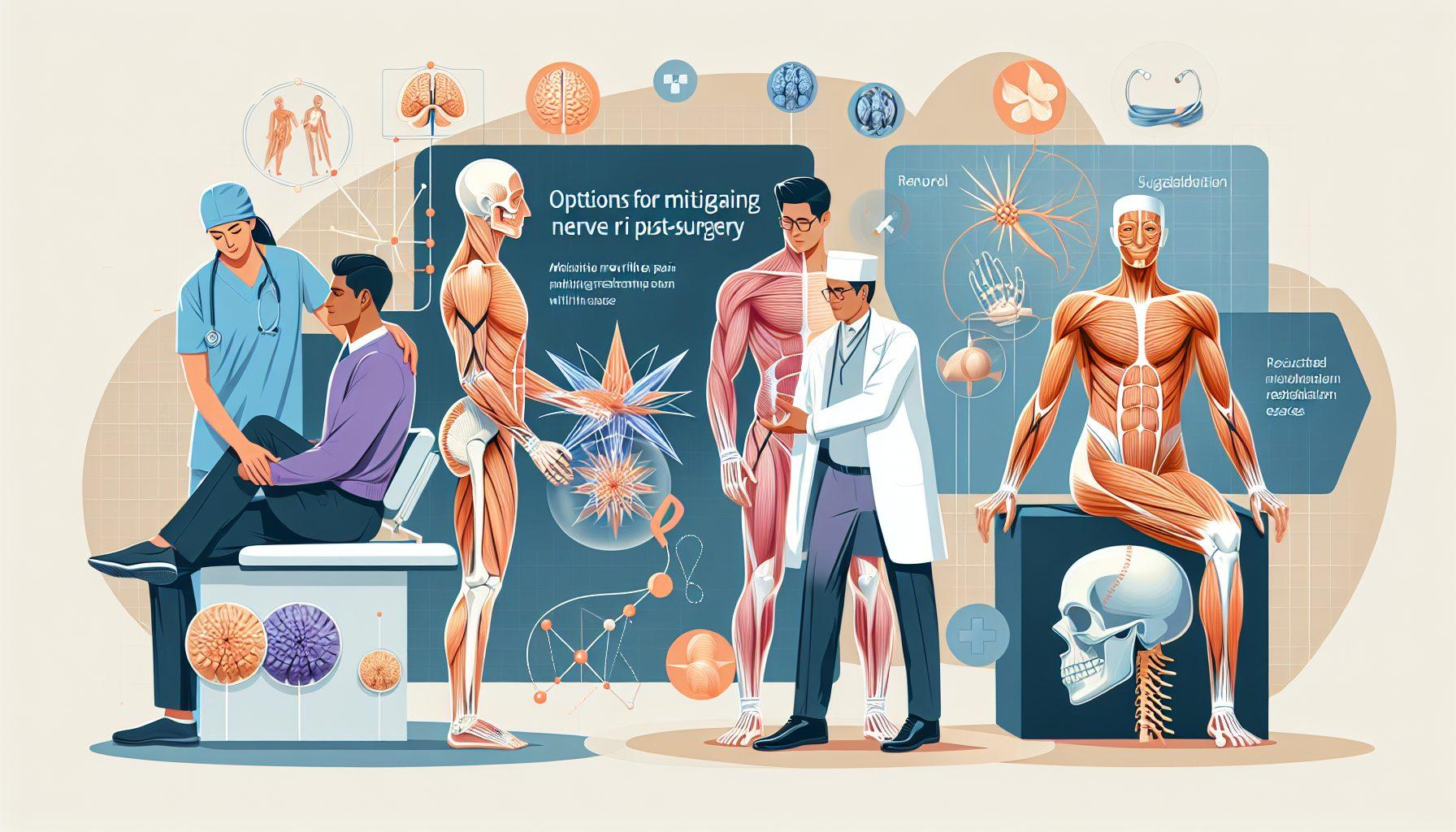Dealing with nerve pain after surgery can be a challenging and uncomfortable experience. While it is common to experience some level of pain and discomfort after a surgical procedure, nerve pain can be particularly distressing. Understanding the causes of nerve pain after surgery and knowing how to address it can help you find effective relief and promote a successful recovery.
Causes of Nerve Pain After Surgery
Nerve pain, also known as neuropathic pain, can occur after surgery due to various factors. Here are some common causes:
- Inflammation: Surgical procedures can cause inflammation around the nerves, leading to nerve pain.
- Nerve Injury: During surgery, nerves can get damaged or compressed, leading to pain.
- Scar Tissue Formation: Scar tissue can develop around the nerves, causing irritation and pain.
- Trapped Nerves: In some cases, nerves can become trapped or pinched during surgery, resulting in pain and discomfort.
It is essential to identify the underlying cause of your nerve pain after surgery, as it can help determine the most appropriate treatment options.
Treatment Options for Nerve Pain After Surgery
When it comes to addressing nerve pain after surgery, there are several treatment options available. Here are some strategies that can help alleviate your discomfort:
- Medications: Your doctor may prescribe medications to manage your nerve pain. Nonsteroidal anti-inflammatory drugs (NSAIDs) can help reduce inflammation and relieve pain. Additionally, certain medications, such as anticonvulsants and antidepressants, can help block the pain signals sent by the nerves.
- Physical Therapy: Engaging in physical therapy can be beneficial for managing nerve pain after surgery. A physical therapist can provide exercises and techniques to improve flexibility, reduce inflammation, and alleviate pain.
- Transcutaneous Electrical Nerve Stimulation (TENS): TENS therapy involves the use of low-voltage electrical currents to stimulate the nerves and provide pain relief. This non-invasive treatment option can help reduce nerve pain and promote healing.
- Nerve Blocks: In some cases, your doctor may recommend nerve blocks to provide temporary pain relief. This procedure involves injecting medication around the affected nerve to block pain signals.
- Acupuncture: Acupuncture is an ancient practice that involves the insertion of thin needles into specific points of the body. It can help alleviate nerve pain and promote overall well-being.
It is important to consult with your healthcare provider to determine the most appropriate treatment option for your specific situation.
Self-Care Measures for Nerve Pain After Surgery
In addition to medical treatments, there are self-care measures you can take to manage nerve pain after surgery. Here are some tips:
- Rest and Relaxation: Giving your body ample time to rest and recover is crucial for healing. Avoid strenuous activities that may exacerbate your pain.
- Manage Stress: Stress can intensify pain perception. Incorporate stress management techniques such as deep breathing exercises, meditation, or yoga into your daily routine.
- Heat and Cold Therapy: Applying heat or cold packs to the affected area can help reduce inflammation and alleviate pain. Make sure to follow your doctor’s recommendations regarding the appropriate duration and frequency of use.
- Get Regular Exercise: Engaging in low-impact exercises, under the guidance of a healthcare professional, can help improve circulation, reduce inflammation, and promote healing.
- Dietary Considerations: Eating a balanced diet rich in nutrients can support your body’s healing process. Include foods that have anti-inflammatory properties, such as fruits, vegetables, and omega-3 fatty acids.
It’s important to note that these self-care measures should complement your medical treatment. Always consult with your healthcare provider before making any significant changes to your lifestyle or implementing new treatments.
Finding effective solutions for nerve pain after surgery may require a combination of medical treatment, self-care measures, and patience. It’s important to be proactive in seeking help and communicating with your healthcare provider if you continue to experience persistent or worsening pain.
If you’re looking for professional guidance on post-surgery rehabilitation, Eastside Ideal Health offers comprehensive programs designed to help patients recover and regain function after surgical procedures. Their team of experienced healthcare professionals can provide personalized treatment plans to address your specific needs. Visit Eastside Ideal Health’s website to learn more about their services and schedule an appointment.
Remember, you don’t have to suffer alone. By taking the necessary steps to address nerve pain after surgery, you can find relief and get back to living a fulfilling and pain-free life.

